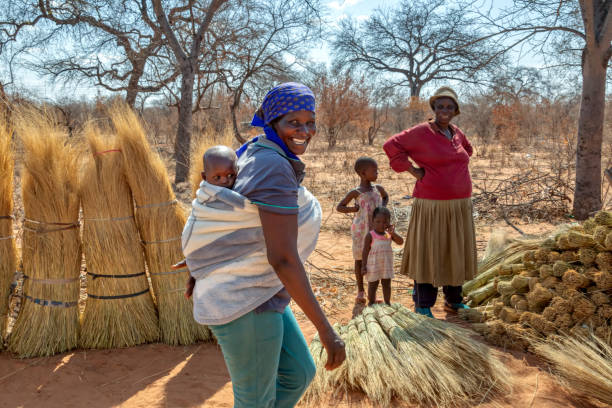
Wrapping up International Women’s Month with a reflection on our work in development and the impact of inclusion in all communities. We celebrated International Women's Day on the 8th of March, which originally started from labor movements in North America and Europe, and was later adopted by several countries. The 2024 UN theme is “Invest in women: Accelerate progress” which emphasises investing in women’s health, education, leadership, and economic empowerment. Reflecting on the origins of this day, made me realize how standards on which women and what to celebrate have been set and followed yet there is another uncelebrated and spoken group of women.
At the beginning of this year during a culture change session, one lady boldly said her superpowers were being a mother and me not being a mother I appreciated it from another perspective and not the lived experiences of this. These are catchphrases usually popular on Mother’s Day, but this time I took it as a reflective message for International Women’s Day, specifically on womanhood and then I remembered Mai Tanatswa and Madzimai Rutendo.
Mai Tanatswa is a mother of two who gave birth to her youngest child in November 2023, four months after giving birth Mai Tanatswa is seen every day at 0500am rushing for a combi to Mbare Msika to buy stock for her vegetable market stall Baby Tanatswa strapped on her back. A few questions came to my mind, has Mai Tanatswa recovered from post-partum depression already? Has she followed the doctor’s note that she should rest? At the dawn of the day, Mai Tanatswa is seen rushing to a nearby gas station holding a 5kg gas tank and she still has baby Tanatswa strapped on her back. Mai Tanatswa is a number of the many women across the continent who contribute to a country’s economy through unpaid domestic and care work. The continuous existence of women in domestic and unpaid work contributes to a low number of women in the formal sector, thereby leading to low wages and incomes reinforcing women’s economic marginalisation. Investing in women’s unpaid and domestic work not only promotes gender equality but also enhances the conditions of women in the informal sector.
Similarly, there is Madzimai Rutendo, a woman living with disabilities and a detergent seller. Madzimai Rutendo is a 25-year-old single mother, who was married at the age of 16 but her husband left her in January 2024 with 5 children upon realisation that she was secretly taking contraceptive pills, which is against the doctrine of their church. Madzimai Rutendo has not only had several miscarriages, but she has also lost a child whilst giving birth at a church shrine. She is amongst the many women in Zimbabwe who are deprived of basic rights to birth due to religious and cultural beliefs, thereby experiencing obstetric violence. Although Zimbabwe’s 2024 National Budget allocated approximately US $ 1,09 million to the health and child welfare ministry which is an increase from last year’s budget allocation, the budget does not meet the World Health Organisations’ recommended budget allocation for women and children. To what extent are women in leadership involved in the drafting of a budget for the Ministry of Health? Maternal health care in Zimbabwe remains a pandemic to women especially those in the rural areas with limited access to maternal health care facilities.
These are not fictitious stories but are the lived experiences of women not only in Zimbabwe but many parts of Africa, who have faced obstetric violence in a country with one of the highest maternal mortality rates in the world.[1] These stories tell the everyday lived experiences of Zimbabwean if not many African women. Unfortunately, for years IWD has been paying attention to professional women, the award-winning women, the woman keyboard warriors on Twitter fighting for gender equality and maternal health rights of women, and given an accolade for being the best women’s rights defender. Yet, the female foot soldier is the forgotten and excluded women who continue in the peripheries. Without, many voices representing them these women have demonstrated triumph against all odds, resilience, and strength. Women who are not only worth celebrating but who deserve to have been included and recognized in various sectors of development.
In support of this year’s theme is on accelerating women’s progress in every aspect including healthcare, Muthengo Development Solutions is embarking on projects, aiming to equip women in the marginalised communities. #InclusionEquity
Ref: [1] Pregnant women and girls face barriers to accessing public health facilities and risk life-changing injuries (amnesty.org)

